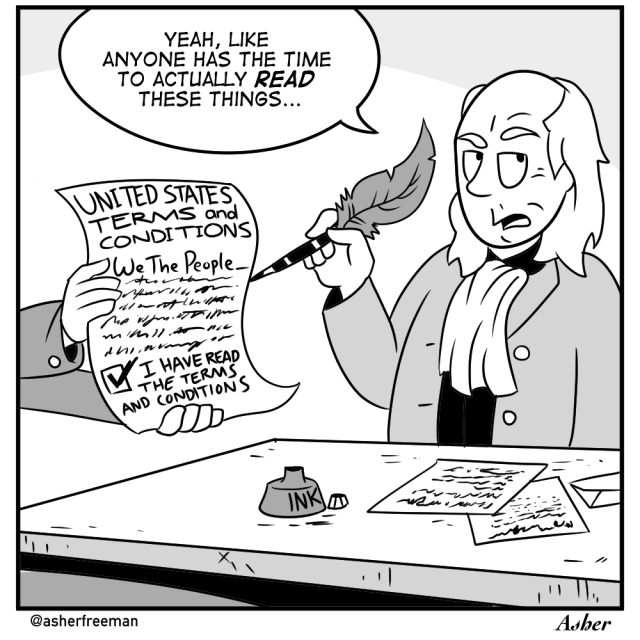How many times have we all heard people talking about First Amendment rights being violated, the Second Amendment rights being taken away, or the government bypassing the Fourth Amendment to invade the privacy of American citizens in the name of national security?
Over and over again you hear these dilemmas, and they all stem from the same governing document — the Constitution. Most of us debate about these things with each other across the outlets of communication at our disposal.
Before anyone clicks out of this article, take this into consideration. The Constitution – the very foundation of the country we all live in, which affects all of us whether we like it or not – is still a relatively short document. If you copy and paste the Constitution in Microsoft Word with 12-point Times New Roman font, it will amount to about eight pages. Eight pages.
The stigma of the Constitution being too long is really just a lazy excuse. And the weight of the Constitution’s significance to our country is so great that a lazy excuse like that is unacceptable.
The Lariat is proposing that we all, many of us being first-time voters this season, take the time to read and study the Constitution.
Especially after the passing of the late U.S. Supreme Court Justice Antonin Scalia, a member of the highest court in the nation, which is tasked with interpreting the Constitution. We should all be concerned with the next justice’s Constitutional interpretation as much, if not more, than we are concerned with the Constitutional interpretations of presidential candidates.
Over and over again, we refer back to the Constitution primarily to know what our rights are and how much power the government should possess.
For those of you that call yourselves conservatives, constitutionalists, originalists and so on, taking the time to read and know the Constitution should be the cornerstone of your political constructs. You have no reason to be constitutionally illiterate or incompetent for that matter. It’s really that simple.
For those of you who consider the Constitution a living, breathing document, you too should feel compelled to read it.
If you seek to take away certain rights, add certain rights, add power, take away power, it would behoove you to know specifically what it is that needs to be changed, bolstered or left intact. That goes for everyone in the broad spectrum of constitutional interpretation.
Mind you, the Constitution is not all about personal rights. However, at its core, the Constitution is about liberty. The Constitution addresses matters of how the government functions, as well as the personal liberties found in the Bill of Rights.
Any question that involves the Constitution is a question of liberty. Some make amendments or defend the Constitution to protect liberty. Others lead efforts to take away liberty.
The Lariat is convicted to be more constitutionally literate and competent. For the betterment of the individuals, the university, the state of Texas and the nation as a whole, the Lariat pleads for Baylor student body to do the same.



